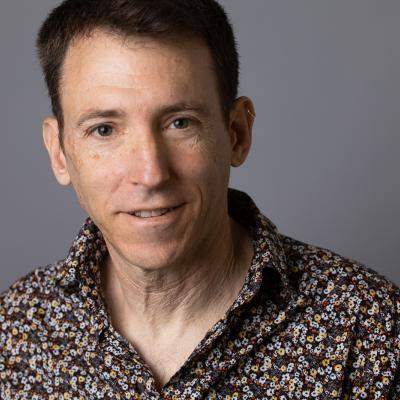MPhil/PhD in African Languages and Cultures



Key information
- Duration
- 3 years full-time or 6 years part-time
- Attendance mode
- Full-time or part-time
- Location
- On campus
- Fees
-
Home (full-time): £5,055 per year
International (full-time): £23,390 per year - Entry requirements
-
We normally require a 2.1 bachelor's degree (or its equivalent) plus a Masters degree in appropriate subject area plus one reference. In exceptional cases we may accept applicants who do not meet these criteria if they show evidence of a strong Masters degree and/or appropriate level of relevant work experience. International applicants should also see Doctoral School English language requirements
Course overview
On the MPhil/PhD in African Languages and Cultures, supervision is provided for research leading to MPhil and PhD degrees within the broad general area of African studies.
Research topics such as the study of a language (from a descriptive, comparative, philological or textual point of view), or of literature (whether author-based, thematic or comparative), or of any of the performing arts, which falls within our own core expertise, are supervised entirely in the African Languages, Cultures and Literatures Department. However, there is great potential for extending the range of topics by means of joint supervision with colleagues from other departments and centres.
Why study African Languages and Cultures at SOAS?
- SOAS ranks 1st in London in the Complete University Guide 2021 for Middle Eastern and African Studies, and 6th in UK
- we are specialist in the studies of Africa, the Middle East, South Asia and South East Asia
- gain in-depth understanding of one these key world regions, grounded in the study of one or more languages of the region
- access SOAS’s comprehensive cross-regional expertise and gain an understanding of the interconnectedness of these regions in an increasingly globalised world.
Structure
All students register in year 1 of the programme as MPhil students. The upgrade from MPhil to PhD takes place at the end of the first academic session for full time students (or at the end of the second academic session for part time students).
All new MPhil/PhD students are provided with a supervisory committee of three members, comprising a main or primary supervisor, and a second and third supervisor. The split in time commitment across the supervisory committee is 60:25:15. In the first year students are expected to meet their main supervisor on a bi-weekly basis for a period of at least one hour.
The student’s primary supervisor is always a member of the Department in which the student is registered. The second and third supervisors, who act in a supplementary advisory capacity, may be from the same Department, or other Departments/Centres in the Faculty of Languages and Cultures or in Departments/Centres in the other Faculties of the School.
Depending on the nature of the research, joint supervision is sometimes recommended, under the direction of two primary supervisors. In such cases the student has only one further supervisor on their committee.
The student’s progress is further overseen by a Departmental Research Tutor.
Year 1
In the first year, students prepare for research by following a research training seminar series (RTS) convened at the Faculty level by the Associate Dean for Research and supported by the generic training on offer in the Centre for Innovation in Learning and Teaching (CILT).
Students working in the fields of literature and cultural studies are also invited to participate in the additional training offered in the Centre for Cultural, Literary and Postcolonial Studies (CCLPS) .
Students may also be encouraged by supervisors to attend additional taught courses relevant to their research and to their training needs. These may include specialist disciplinary, language or regional culture courses or research training in other Departments outside the Faculty.
Year 1 full time students (year 2 for part time students) are required to submit a core chapter (of about 10,000 words), and associated materials for their upgrade presentation. The format/content of the core chapter is agreed between the supervisor and the student, but it will typically include the following elements:
- research rationale and context of proposed research
- main research questions
- literature review (this may be a section in its own right, or relevant material will be integrated into the chapter)
- bibliography
The upgrade presentation (no longer than 20-25 minutes) will be based on the core chapter and provide an overview and perhaps highlight a section of the chapter. The presentation material should be submitted with the core chapter as an appendix: any handouts/powerpoints should also be included here, and details of the following may also be addressed:
- proposed research methods
- ethical issues (where applicable)
- outlining structure of PhD dissertation
- schedule of research and writing
Adjustments to one or more of these sections, including additions or deletions where appropriate, are possible by prior arrangement between the students and lead supervisors.
The upgrade process from MPhil to PhD status is based upon an assessment of the core chapter by the student’s research committee, and upon on a 20-30 minute oral presentation, followed by a discussion. The oral presentation is given to Departmental staff and research students. A mini viva with only the supervisory committee is held following the presentation. On successful completion of the extended proposal, students are formally upgraded to PhD and proceed to the second year. (If the assessors consider there to be shortcomings in the upgrade proposal, students will be asked to revise it to their satisfaction before the upgrade to PhD status can be confirmed.) Students are not normally permitted to proceed to the second year until the upgrade process has been completed.
Year 2
The second year (or part-time equivalent) is normally spent engaged in research. This may be by any combination of fieldwork and research in libraries and material collection as agreed between the student and the supervisor(s).
Year 3
The third year (or part-time equivalent) is devoted to writing up research for the PhD thesis. During this time, students will normally give a presentation in a research seminar organised by the Departmental Research Tutor, comprising a select number of staff members with special expertise in the topic and other research students. During the third year (or part time equivalent) students will present draft chapters to their main supervisor for comment, before completing a final draft of the thesis. Once a full draft is complete, the work is assessed by all members of the supervisory committee and the student can either submit the thesis or move on to Continuation Status to be given a further 12 months to complete the thesis and submit for examination. The thesis must be completed within 48 months from the time of registration (or part time equivalent).
The thesis – not to exceed 100,000 words in length - is examined by two leading authorities in the field, one of whom is internal to the University of London and one of whom is external to the University.
PhD Degrees are awarded by SOAS from registration in 2013 and are subject to SOAS regulations.
Important notice
The information on the website reflects the intended programme structure against the given academic session. The modules are indicative options of the content students can expect and are/have been previously taught as part of these programmes. However, this information is published a long time in advance of enrolment and module content and availability is subject to change.
Teaching and learning
Some recent research theses
- Lizzy Attree, ‘The Literary Response to HIV and AIDS in South Africa and Zimbabwe, 1990-2005’
- Mark Brogden, 'The Culture of Exploration: British Expeditions to Northern Nigeria 1822–1827'
- Zoë Norridge, ‘Perceptions of Pain: Narratives of Hurt and Healing in Contemporary African Literature’
- Betty Sibongile Dlamini, 'Women and Theatre for Development in Swaziland'
SOAS Library
SOAS Library is one of the world's most important academic libraries for the study of Africa, Asia and the Middle East, attracting scholars from all over the world. The Library houses over 1.2 million volumes, together with significant archival holdings, special collections and a growing network of electronic resources.
Employment
Graduates of the School of Languages, Cultures and Linguistics leave SOAS not only with linguistic and cultural expertise, but also with skills in written and oral communication, analysis and problem solving.
Recent graduates have been hired by:
- Africa Matters
- Amnesty International
- Arab British Chamber of Commerce
- BBC World Service
- British High Commission
- Council for British Research in the Levant
- Department for International Development
- Edelman
- Embassy of Jordan
- Ernst & Young
- Foreign & Commonwealth Office
- Institute of Arab and Islamic Studies
- Middle East Eye
- Saïd Foundation
- TalkAbout Speech Therapy
- The Black Curriculum
- The Telegraph
- United Nations Development Programme
- UNHCR, the UN Refugee Agency
- Wall Street Journal
Find out about our Careers Service.












